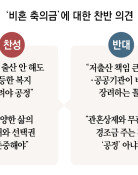Increasing Bad Influence Caused by the Delay of Korea-Chile FTA ratification
Increasing Bad Influence Caused by the Delay of Korea-Chile FTA ratification
Posted November. 07, 2003 22:44,
Bad influence caused by the delay of the national assemblys ratification for the Korea-Chile Free Trade Agreements (FTA) is increasing.
Export of major items to Chile showed a sharp decline, and anxiety over the fall of trust in Korea in world trade is growing.
According to the Ministry of Foreign Affairs and Trade and Korea Trade-Investment Promotion Agency (KOTRA) on October 7, the exportation of fabric and wireless communication tools to Chile, from January to September, each showed a decline of 37 percent compared with the same period last year. And also, exports of refrigerators and visual appliances also declined by more than 20 percent.
KOTRA analyzed that goods made in Korea are being rapidly replaced by the ones made by European Union (EU) countries after the announcement of the FTA between Chile and EU last February.
Choi Nak-gyun, an official at the Korea Institute for International Economic Policy (KIEP), said, The delay of the Korea-Chile FTA can affect the Korean market in South America in whole because South American countries, including Chile, are forming a bloc economy.
Of Koreas $10.3 billion trade surplus last year, Central America and South America constituted 49.7 percent of this ($5.12 billion).
Shin Jang-beom, a diplomat residing in Chile, said on the phone, Chilean senators passed the Korea-Chile FTA in the Foreign Affairs Committee, and it is waiting for the entire council. The delay of the Korean national assemblys ratification will damage the trust of the world in Korea.
Korea-Chile FTA was concluded last February, but it appears difficult to announce this next year because the ratification had been delayed due to the rebellion of the farmers association and the awareness of the general election of next year.
The recent world trade FTA, which is an agreement between two parties or in a certain area, is becoming a new trend that surpasses multilateral negotiation.
Ahn Ho-young, the head of multilateral trade bureau of the Ministry of Foreign Affairs and Trade, said, Competitive power of exports drops when a country is excluded from the FTA, which allows privileged trade among the countries concerned. The bad influence made by the delay of the Korea-Chile FTA ratification will grow because several FTAs, including the U.S.-Chile FTA, will be announced next year.
Eun-Woo Lee libra@donga.com
Headline News
- Gov’t faces criticism over policy reversals and decision-making processes
- Controversy erupts over ‘single life’ welfare packages
- Gov’t announces worker protection measures for heat waves
- Madonna wearing Kahlo’s items faces controversy over special treatment
- Pirates' Bae Ji-hwan pulls off a stunning come-from-behind victory







